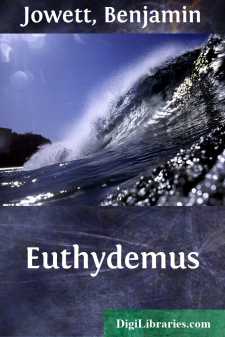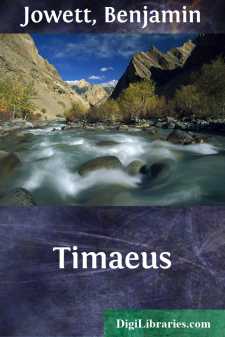Fiction
- Action & Adventure 180
- Biographical 15
- Christian 59
- Classics
- Coming of Age 5
- Contemporary Women 3
- Erotica 8
- Espionage/Intrigue 12
- Fairy Tales, Folklore & Mythology 236
- Family Life 169
- Fantasy 117
- Gay 1
- General 596
- Ghost 32
- Historical 808
- Horror 43
- Humorous 160
- Jewish 25
- Legal 4
- Medical 22
- Mystery & Detective 315
- Political 49
- Psychological 41
- Religious 64
- Romance 159
- Sagas 11
- Science Fiction 730
- Sea Stories 113
- Short Stories (single author) 537
- Sports 10
- Suspense 1
- Technological 8
- Thrillers 2
- Urban Life 31
- Visionary & Metaphysical 1
- War & Military 173
- Westerns 199
Classics Books
Sort by:
THE FIRST CHAPTER How Apuleius riding in Thessaly, fortuned to fall into company with two strangers, that reasoned together of the mighty power of Witches. As I fortuned to take my voyage into Thessaly, about certaine affaires which I had to doe ( for there myne auncestry by my mothers side inhabiteth, descended of the line of that most excellent person Plutarch, and of Sextus the Philosopher his...
more...
by:
Benjamin Jowett
APPENDIX II. The two dialogues which are translated in the second appendix are not mentioned by Aristotle, or by any early authority, and have no claim to be ascribed to Plato. They are examples of Platonic dialogues to be assigned probably to the second or third generation after Plato, when his writings were well known at Athens and Alexandria. They exhibit considerable originality, and are remarkable...
more...
by:
Benjamin Jowett
INTRODUCTION. The Euthydemus, though apt to be regarded by us only as an elaborate jest, has also a very serious purpose. It may fairly claim to be the oldest treatise on logic; for that science originates in the misunderstandings which necessarily accompany the first efforts of speculation. Several of the fallacies which are satirized in it reappear in the Sophistici Elenchi of Aristotle and are...
more...
HIERO, or "THE TYRANT" A Discourse on Despotic RuleIOnce upon a time Simonides the poet paid a visit to Hiero the "tyrant," (1) and when both obtained the leisure requisite, Simonides began this conversation: (1) Or, "came to the court of the despotic monarch Hiero." For the"dramatis personae" see Dr. Holden's Introduction to the "Hieron"of Xenophon. Would...
more...
by:
Samuel Butler
BOOK I The quarrel between Agamemnon and Achilles—Achilles withdraws from the war, and sends his mother Thetis to ask Jove to help the Trojans—Scene between Jove and Juno on Olympus. Sing, O goddess, the anger of Achilles son of Peleus, that brought countless ills upon the Achaeans. Many a brave soul did it send hurrying down to Hades, and many a hero did it yield a prey to dogs and vultures, for...
more...
by:
Benjamin Jowett
INTRODUCTION AND ANALYSIS. Some dialogues of Plato are of so various a character that their relation to the other dialogues cannot be determined with any degree of certainty. The Theaetetus, like the Parmenides, has points of similarity both with his earlier and his later writings. The perfection of style, the humour, the dramatic interest, the complexity of structure, the fertility of illustration,...
more...
by:
Benjamin Jowett
INTRODUCTION. In several of the dialogues of Plato, doubts have arisen among his interpreters as to which of the various subjects discussed in them is the main thesis. The speakers have the freedom of conversation; no severe rules of art restrict them, and sometimes we are inclined to think, with one of the dramatis personae in the Theaetetus, that the digressions have the greater interest. Yet in the...
more...
by:
Benjamin Jowett
Section 1. Socrates begins the Timaeus with a summary of the Republic. He lightly touches upon a few points,—the division of labour and distribution of the citizens into classes, the double nature and training of the guardians, the community of property and of women and children. But he makes no mention of the second education, or of the government of philosophers. And now he desires to see the ideal...
more...
BOOK IIB.C. 411. To follow the order of events (1). A few days later Thymochares arrived from Athens with a few ships, when another sea fight between the Lacedaemonians and Athenians at once took place, in which the former, under the command of Agesandridas, gained the victory. (1) Lit. "after these events"; but is hard to conjecture to whatevents the author refers. For the order of events and...
more...
by:
Benjamin Jowett
INTRODUCTION. The Ion is the shortest, or nearly the shortest, of all the writings which bear the name of Plato, and is not authenticated by any early external testimony. The grace and beauty of this little work supply the only, and perhaps a sufficient, proof of its genuineness. The plan is simple; the dramatic interest consists entirely in the contrast between the irony of Socrates and the...
more...











